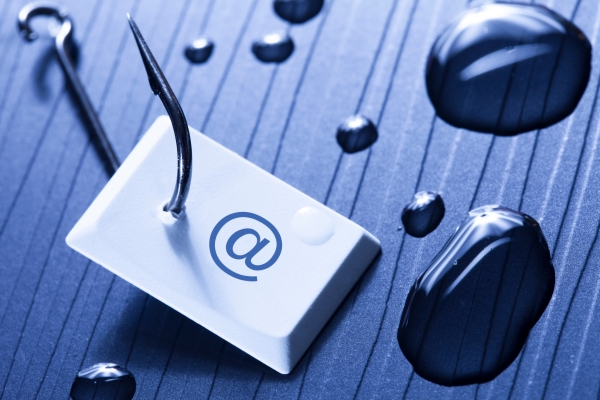What is an Email Security Gateway (SEG / ESG)?
A Secure Email Gateway (SEG) is a solution that filters emails to prevent cyberattacks.
While its use is not mandatory, it is nevertheless strongly recommended (especially for companies) to preserve the confidentiality of exchanged data and network security.
Wish to effectively protect yourself against cyberattacks? Exchange sensitive information via email? Then installing an ESG is vital for you to effectively protect against malicious emails and phishing attempts.
In this article, Debugbar will detail what a Secure Email Gateway is and what it does. And, at the end, we’ll even give you some of the best available in 2024.
A Secure Email Gateway (SEG): What is it and what is it for?
A Secure Email Gateway, sometimes also called Email Security Gateway, is a security system that analyzes emails in transit between two mail servers to:
- Block emails with harmful or malicious content such as spam or viruses
- Prevent cyberattacks
- Protect your sensitive data
- Maintain your reputation intact by preventing the sending of harmful emails from your address
But to understand well how an ESG manages to offer such protections, it is useful to understand how it works.

How does an Email Security Gateway work?
An ESG follows several steps to ensure that every email you receive or send is clean and secure. How does it do this? Well, very simply:
- It filters your incoming and outgoing mails:
- Filtering incoming emails: When an email arrives, the ESG inspects it for signs of suspicious activity, like phishing, spam or even the presence of viruses. The attachments and links are also analyzed to ensure that they do not contain malware or refer to dangerous sites.
If an email is deemed non-compliant or harmful, it is either rejected or quarantined for further analysis. - Filtering outgoing emails: In the same way, the ESG scrutinizes outgoing emails to ensure that no sensitive data inadvertently leaves the organization. If necessary, it can also encrypt emails to guarantee their confidentiality.
- Filtering incoming emails: When an email arrives, the ESG inspects it for signs of suspicious activity, like phishing, spam or even the presence of viruses. The attachments and links are also analyzed to ensure that they do not contain malware or refer to dangerous sites.
- It analyzes the sent mail using advanced technologies: Many security gateways incorporate sophisticated features like:
- The “sandboxing”: This technique allows for analyzing suspicious attachments in a secure environment (called a sandbox).
Thus, if they turn out to be threats, they are blocked in the sandbox and will not be able to infect your system. - The techniques of machine learning and artificial intelligence: by using AI, SEGs can detect new threats and refine their response capacities.
- The “sandboxing”: This technique allows for analyzing suspicious attachments in a secure environment (called a sandbox).
- It protects your data: Moreover, an ESG can also filter the content of outgoing emails. It thus prevents the unintentional sending of sensitive or confidential data.
In short, a Secure Email Gateway acts as a gatekeeper, examining all incoming and outgoing emails to detect and block threats, while ensuring that sensitive communications stay secure and confidential.
Moreover, the beauty of SEG is that it works 24/7 tirelessly to protect you.
What are the advantages of using a Secure Email Gateway?
One of the greatest strengths of ESG is its ability to provide comprehensive and proactive protection against email threats.
- It ensures proactive defense: An ESG constantly analyzes all incoming and outgoing emails to detect any potential threat. It’s your first line of defense against cyberattacks via emails.
- It protects your data: A Security Email Gateway can also prevent accidental sending of sensitive information via email, thereby protecting your company’s private information.
- It helps you comply with various regulations: For businesses, using an ESG can help maintain compliance with data security regulations.
As you can see, an ESG can prove very useful. However, it has some limitations…

Are there any drawbacks to using a secure email gateway?
As with all technologies, there are also some disadvantages to consider when talking about ESG.
- An ESG may struggle against sophisticated attacks: While SEGs are very effective against most cyberattacks, they might struggle to detect certain sophisticated attacks such as spear phishing or social engineering attempts.
- SEGs need regular updates: SEGs require regular updates to stay relevant in the face of new forms of cyberattacks. This, therefore, implies some management and maintenance effort that might not suit everyone.
Alright, now that we have explained what an Email Security Gateway is, let’s see how to choose yours.
How to choose your Email Security Gateway?
When it comes to choosing an Email Security Gateway (SEG), many questions may arise, but the main two will often be:
- Should I go for an ESG or an ICES?
- And, should I opt for a cloud-based ESG or an on-site one?
ESG vs. ICES: Which is better?
If you’ve been searching for a solution to ensure your email exchanges remain secure, you’ve probably come across the two predominant approaches to email security:
- The traditional Email Security Gateways (SEGs),
- and the new cloud-based Email Security Platforms, also known as ICES.
Unless you’re an expert in the field, it can be challenging to know which option to choose. Let’s discuss the differences between each solution and see which one might suit your needs best.
- A Traditional ESG solution can either be hosted on-site or deployed in the cloud.
It operates by filtering incoming and outgoing emails to block spam and malware, prevent phishing attempts, and stop sensitive information from being sent out. - On the other hand, an ICES platform uses machine learning and natural language processing to analyze and block threats in real-time.
Unlike a traditional ESG, an ICES can identify novel and more sophisticated threats based on social engineering.
| Traditional ESG | ICES | |
| Used Technologies | Email filtering, spam blocking, phishing prevention, protection of information. | Machine learning, natural language processing, real-time threat detection. |
| Detected Threat Types | Spam, malware, conventional phishing attempts. | Spam, malware, sophisticated phishing, social engineering attacks. |
| Update | Requires regular updates to stay relevant. | Can adapt in real-time to detect new threats. |
| Costs | Higher initial cost but fewer ongoing fees. | Lower initial cost but requires monthly or yearly subscriptions. |
The choice between a traditional SEG and an ICES platform will depend on your specific needs and available resources.
Each option has its pros and cons, so it’s crucial to carefully consider your requirements before making a decision.
Cloud-based SEG or on-site SEG: Which to choose?
An ESG can be either hosted on the service provider’s cloud servers or installed and managed on the company’s physical servers. Being significantly different solutions, you will need to choose between them.
When it comes to choosing between a cloud-based SEG or an on-site solution, there is no one-size-fits-all answer. It depends on your specific needs… Let us explain this in more detail to help you understand better.
Cloud-based SEG
Cloud-based SEGs are hosted by a third-party provider. The significant advantage of this type of SEG is its scalability.
You can easily increase or decrease your capacity based on your needs. Moreover, since everything is managed by the provider, you won’t have to worry about updates, security, or maintenance.

On-Site SEG
If you’re looking for complete control over your email security system, then on-site SEGs are for you.
On-site SEGs are entirely hosted on your servers. This means more control but also more responsibility regarding maintenance, updates, and security.
| Cloud-Based SEG | On-Site SEG | |
| Scalability | High | Low to moderate |
| Maintenance | Managed by the provider | Client’s responsibility |
| Updates | Automatic | Manual |
| Security | Managed by the provider | Client’s responsibility |
| Control | Low to moderate | High |
Now that you know everything about SEGs, all you have to do is choose the right one for you. Need a helping hand? Here are some suggestions…
Top 3 Email Security Gateways to watch in 2024
The Secure Email Gateways market is vast, with numerous providers offering a variety of solutions.
So, choosing one can be tricky.
However, if you’re looking for a reliable option, here are three of the most promising SEGs in 2024:
- Cisco Email Security: This solution from Cisco offers comprehensive features to protect your emails from spam, phishing, and malware.
- ProofPoint Email Protection: ProofPoint provides advanced email threat protection, including protection against phishing and BEC (Business Email Compromise).
- Barracuda Email Security Gateway: Barracuda’s solution provides comprehensive email threat protection, along with an archiving feature to store and retrieve crucial information easily.
Email Security Gateway: Key Takeaway
A Secure Email Gateway (SEG) is critically important for maintaining the security of your email communications.
It will help you with:
- Detecting and blocking malicious content
- Preventing cyberattacks
- And protecting your sensitive data
So, to stay safe, installing an SEG might just be the right move… Plus you have a variety of solutions to choose from (Cisco, Barracuda, or ProofPoint).